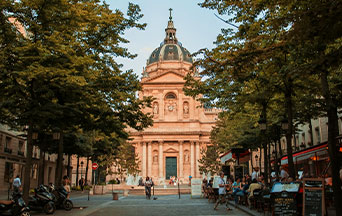
As editor of L’Univers, Louis Veuillot ceased his unrelenting struggle against the Falloux Law after it passed in 1850. For Catholics, the law improved the teaching situation in France, despite its severe defects. Accordingly, Veuillot penned a statement of obedience and resignation.
“The education bill has been approved. We fought it relentlessly with vigor and perseverance equal to our conviction. We wanted it rejected but could not even improve it. It comes out of the vote with all the gaps, objectionable aspects and dangers that we pointed out, placing the Church in a difficult and dangerous situation. It consolidates the University [system] and pushes back, perhaps for a long time, the day of freedom, whose dawn, at a given moment, we believed we could salute.
“Let this last protest be heard because we do not protest only in our name. The majority of Catholics are with us. This freedom they claim to give us is not freedom. It is not the freedom we ask for ourselves and others. It is not freedom of teaching, freedom of conscience, freedom of the family, freedom of the community, or freedom of the Church. In short, it is not freedom.”0
“We will obey. Our bishops are the guardians of Christian consciences. The law will be for us what it is for them. God forbid we should ever lack the obedience and courage to carry out their resolutions, made with their faith-inspired wisdom.”
Then, the editor inserted language that he hoped would inspire old associates like the Count de Montalembert.
Eternal and Natural Law: The Foundation of Morals and Law
“The strong and dear ties that bound us to some of the law’s authors are not broken. We are ready to march with them to reform the law if it proves decidedly bad (which they will recognize as readily as we do) or to make the best of it, if feasible, which we will see as well as they, or to defend it if we have decidedly been wrong. May this last possibility come true, preferably to all others! Our self-respect cannot be wounded when the interest of the Church is safe.”
Not everyone who waged the struggle on Veuillot’s side agreed. The Falloux law stipulated that the French episcopate would elect four bishops as representatives on the University’s supreme council. Initially, some prelates refused to participate in the election. Others, such as Bishops Louis-Édouard Pie of Poitiers and Pierre-Louis Parisis of Langres, sought to have the bill revoked.
Since the government did not want to risk defeat in the face of persistent resistance, Bishop Felix Dupanloup of Orléans and Count de Montalembert asked the Holy See to intervene. Pius IX answered two months later. The Pope recalled that, when necessary, the Church contents itself with imperfect liberty whenever compatible with her existence and duties. In this sense, he recommended that Catholics accept the Falloux law. Docile to the Pope’s directives, the bishops proceeded to the election and chose Thomas-Marie-Joseph Gousset, Archbishop of Reims and François-Nicholas-Madeleine Morlot, Archbishop of Tours, as well as Bishops Parisis and Dupanloup, to make up the University Council.
The campaign for freedom of teaching was over. In France, the Falloux law still governs teaching with some modifications, almost all contrary to Church interests.
 Learn All About the Prophecies of Our Lady of Good Success About Our Times
Learn All About the Prophecies of Our Lady of Good Success About Our Times
Despite Veuillot’s goodwill shown in the above article, union among French Catholics was no longer possible. Bishops Parisis and Pie manifested their adherence to the law after the message of Pius IX. The Catholic Party dissolved. Making the schism ever deeper, Bishop Dupanloup led the legislation’s supporters toward Catholic liberalism.
This spirit of accommodation and the desire to agree with “progress” and new ideas, which led Count de Falloux and other Catholics to fight for the bill’s approval, closed the most beautiful chapter of the nineteenth-century French Catholic movement. It also extinguished the beauty and brilliance of Montalembert, who had hitherto been entirely dedicated to the Catholic ideal. After the Falloux law’s approval, Montalembert aligned with the liberal Catholics. His campaign for the freedom of teaching was what almost exclusively made him renowned and established his career as president of the French Academy, deputy, etc. He conducted that battle admirably until the moment he decided to end it ingloriously.
Photo Credit: © sunnysashka – stock.adobe.com

